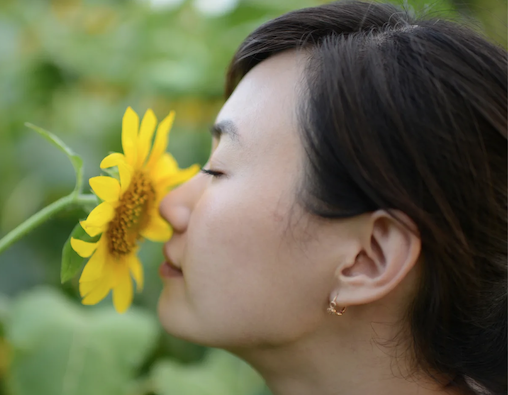Have you ever noticed how bland even spicy food can taste when your nose is stuffed up?
That’s because your senses of taste and smell are intertwined. Taste buds don’t only reside in your mouth and throat; they also line the passage leading from your mouth to your nose. When those taste buds become blocked or damaged, you can’t smell your food, and when you can’t smell your food, it’s harder to taste it, and you may lose your appetite. Losing your sense of smell can affect not only your quality of life, but your safety, as well. Taste, Smell and Safety go hand and hand.
Why do we lose our sense of smell?
As we age, our sense of smell becomes less sensitive, especially for people:
- With Alzheimer’s, Parkinson’s, or kidney disease
- Who regularly and frequently smoke cigarettes
- Who regularly and frequently drink alcoholic beverages
Other events and conditions that can damage or otherwise interfere with our sense of smell include:
- Allergies, colds, and infections
- Nasal polyps (non-cancerous tumors in your nose or sinus cavities)
- Head or neck injury or other trauma
- Neurological disorders such as multiple sclerosis
- Side effects of some antibiotics, blood pressure drugs, and other medications
- Certain medical treatments such as radiation and chemotherapy
How can losing our sense of smell affect our safety?
A keen sense of smell is crucial for keeping you safe in a variety of way, by:
- Preventing you from overusing sugar, salt, and other potentially harmful flavorings
- Stimulating your appetite, reminding you to eat and nourish your body
- Alerting you to rotting or curdled food
- Signaling hygienic needs and changes that can affect your health
- Warns you of environmental danger, as with:
- gas from an oven
- smoke from a fire
- potentially dangerous chemical hazards
Why else is our sense of smell important?
While our sense of smell performs the critical function of protecting our physical safety, it also plays a starring role in helping to preserve memory. Smell is our most primitive sense, and it is powerful. Certain fragrances:
- Perfume or cologne
- Motor oil
- Pipe tobacco
- Cinnamon buns
can be attached to vivid memories that you carry with you throughout your life, and which can frequently be evoked by a stray whiff of a similar smell years later.
If you’re not smelling like you used to
If your favorite foods don’t smell the same and no longer excite you, you can try jazzing up your diet by appealing to your other senses. You could add:
- Brightly-colored foods, such as:
- carrots, corn, sweet potatoes,
- grapes, mangos, berries,
- broccoli, spinach, asparagus
- Foods in different shapes and textures, such as:
- Wagon-wheel pasta
- Crunchy peanut butter
- Crispy apple chips
- Flavorful spices and condiments that won’t raise your blood sugar or sodium, such as:
- Sage, rosemary, thyme, mint
- Garlic, ginger, onion, pepper
- Mustard, vinegar, flavored oils
If familiar foods and household items (e.g. soaps, shampoos) don’t smell the same to you, or if people around you are noticing smells that you don’t, speak with your healthcare provider.
*Shmerling, R. H. (2019, June 18). A poor sense of smell might matter more than you thought. Harvard Health Blog. Updated August 16, 2019. https://www.health.harvard.edu/blog/a-poor-sense-of-smell-might-matter-more-than-you-thought-2019061816857
by Margalo Eden

